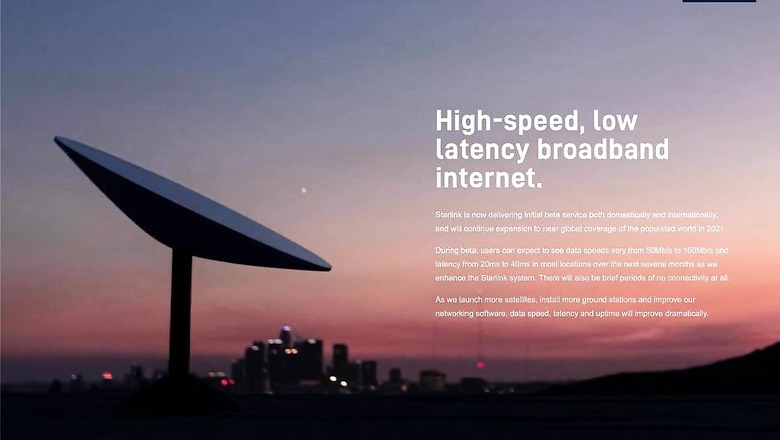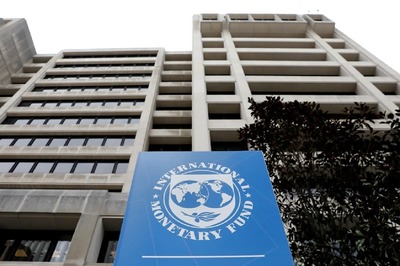
views
Elon Musk’s SpaceX is extending the testing phase of the Starlink satellite broadband service is now accepting preorders from anyone who may want to get access. This is the second push for the Starlink satellite internet service, with the previous public beta testing invites sent out in October last year to sign up for the service. Anyone who is interested can register for the preorder now, and it’ll cost $99 in coverage areas. The service, at this time, is being offered in US, Canada and the UK. But there is good news for everyone around the world, because Starlink says that the satellite internet service will see near global coverage sometime this year. Could this include India? We cannot be sure just yet, but SpaceX has already submitted its recommendations to the Telecom Regulatory Authority of India (TRAI) last year, for a considered push for satellite broadband in the country.
Starlink says that during the beta testing phase, users will get broadband speeds between 50Mbps and 150Mbps with the latency expected between 20ms and 40ms, depending on location. But the company confirms that this is work in progress and connectivity will improve in the coming months. “As we launch more satellites, install more ground stations and improve our networking software, data speed, latency and uptime will improve dramatically,” says Starlink. In January, SpaceX launched 60 Starlink satellites to orbit and another 60 are planned for February as well, adding to the constellation already deployed.
The Starlink kit gets you a phased-arrayed’ satellite dish, a tripod and a Wi-Fi router. You can download the Starlink app for iPhone and Android phones to determine the best install location at your home or office. The Elon Musk-owned aerospace company SpaceX intends to provide high speed internet connectivity from the Starlink constellation of satellites. The aim is to offer 1Gbps internet speeds and a global coverage in due course of time, with a fairly low latency of up to 25ms, once the constellation is complete. SpaceX plans to put a total of 12,000 Lower-Earth Orbit (LEO) satellites in its Starlink constellation and wrote to the US FCC for permission, early last year, for 30,000 satellites as part of the Gen2 System. A satellite internet system in India could help push connectivity to the regions where wired broadband still remains unavailable, or at best offers inconsistent coverage due to distance or terrain.
Read all the Latest News, Breaking News and Coronavirus News here




















Comments
0 comment